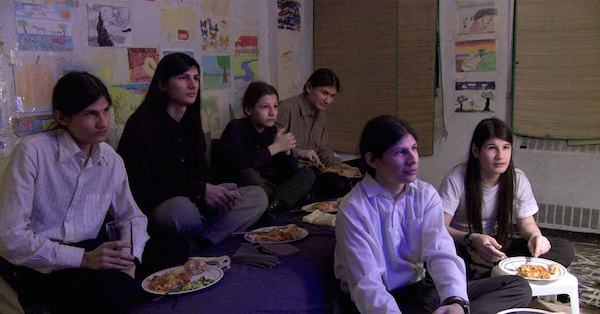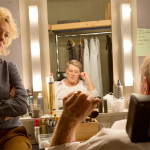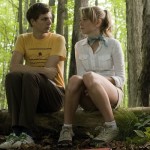The Wolfpack Review
There’s a beautiful story somewhere in the mess that is The Wolfpack. There’s also an uplifting story, a terrifying story, a comedy, a tragedy, and who knows what else. So why is the end result such a mish-mash of tones and themes? Why doesn’t it know what it wants to be?
Perhaps it comes down to how the film got made. Director Crystal Moselle met her subjects—the Angulo brothers—when their unique appearance caught her attention walking down the streets of New York. At the time, she didn’t know this was one of but a few precious forays outdoors for the brothers, but after a conversation about their upbringing and their love of movies, Moselle knew she wanted to make a documentary about them.
But Moselle never chooses a lane. The Wolfpack is ultimately most affecting when it’s telling a straightforward, unambiguous story about how these boys grew up—their struggles with their father and the outside world. That’s all good stuff, but it drowns in a film that’s confusingly edited and awfully meandering. Worse still is the inclusion of the brothers’ movie-making, which feels like nothing more than a marketing hook—a guise to get cinephiles into the theater. It never adds up to much and hardly gets explored outside of the film’s first 20 and final five minutes.
The Angulos are members of their own small Hare Krishna community, led by their father, Oscar. Forbidden from leaving their small New York apartment, they grow up entranced by the world of film. They act out creatively by re-enacting some of their favorites—Reservoir Dogs and The Dark Knight, among others. As they get older, however, these re-enactments aren’t enough. They start venturing out into the world, where they get into trouble. Their father is losing his grip over them, while their mother tries to keep the peace among this dysfunctional and increasingly hostile and volatile clan.
Watching The Wolfpack and knowing its origins, I couldn’t help but think about Lauren Greenfield’s excellent Queen of Versailles. That film was born as one idea and metamorphosed into something completely different as real life intruded on both Greenfield and her subjects. A documentation of the world’s largest private home became an off-beat, riches-to-rags story about a family that let money define them. What’s relevant here is the idea that Greenfield was able to adapt. I didn’t see that from Moselle. As her subjects change—and a lot of that change is self-imposed, rather than brought on by external forces—her answer is to throw it all at the wall. The result: Very little sticks. I felt sympathy for the boys and their mother, but never empathy. It screams out for a thesis statement—something, anything—but one never makes itself apparent.
The boys’ movie-making is earnest and honest, but again, Moselle doesn’t spend enough time with it to make it feel important to their development. The real story is all backstory, yet we jump around between that and the relatively uneventful present, which makes The Wolfpack feel a bit like an overexcited Inarritu film minus the energy that lets an Inarritu get away with his timeline hopping.
Is The Wolfpack worth your time? Perhaps. It’s not entirely void of interesting moments or charm. I just wish it was more coherent. Ultimately, it’s all summed up well by the film’s closing credits—an Angulo-directed short film that’s well-intentioned and strangely intriguing, but also sloppy, confusing, a bit pretentious, and oddly alienating.

















2 Responses to The Wolfpack Review